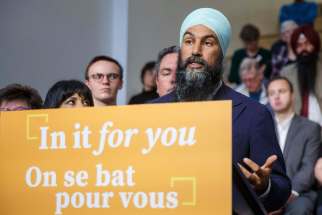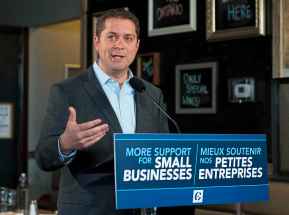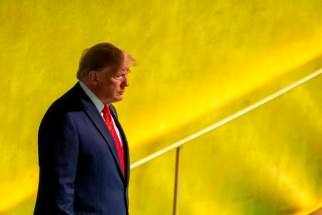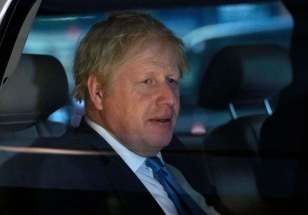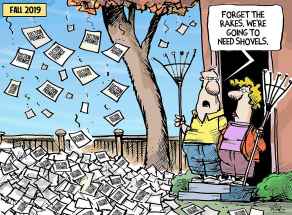Supreme Court rebuke leaves Johnson with few options
Read this article for free:
or
Already have an account? Log in here »
To continue reading, please subscribe:
Monthly Digital Subscription
$0 for the first 4 weeks*
- Enjoy unlimited reading on winnipegfreepress.com
- Read the E-Edition, our digital replica newspaper
- Access News Break, our award-winning app
- Play interactive puzzles
*No charge for 4 weeks then price increases to the regular rate of $19.00 plus GST every four weeks. Offer available to new and qualified returning subscribers only. Cancel any time.
Monthly Digital Subscription
$4.75/week*
- Enjoy unlimited reading on winnipegfreepress.com
- Read the E-Edition, our digital replica newspaper
- Access News Break, our award-winning app
- Play interactive puzzles
*Billed as $19 plus GST every four weeks. Cancel any time.
To continue reading, please subscribe:
Add Free Press access to your Brandon Sun subscription for only an additional
$1 for the first 4 weeks*
*Your next subscription payment will increase by $1.00 and you will be charged $16.99 plus GST for four weeks. After four weeks, your payment will increase to $23.99 plus GST every four weeks.
Read unlimited articles for free today:
or
Already have an account? Log in here »
Hey there, time traveller!
This article was published 24/09/2019 (2272 days ago), so information in it may no longer be current.
To borrow a colloquial phrase from our friends on the other side of the Atlantic, Boris Johnson is in a spot of bother at the moment.
The Brexit-bulldozing British prime minister received the latest in a series of stern rebukes on Tuesday, this time from his nation’s Supreme Court in the form of an emphatic ruling that his controversial decision to ask the Queen to prorogue Parliament for five weeks in the crucial leadup to the Oct. 31 Brexit deadline was “unlawful, void and of no effect.”
The consensus view of Mr. Johnson’s request for prorogation of Parliament was that the tactic was cynical and opportunistic; many of the British PM’s critics also asserted the move was amoral and a betrayal of parliamentary tradition. But the Supreme Court’s declaration — with all 11 justices in agreement — that the act was unlawful and that Parliament must immediately resume places Mr. Johnson in a political paradox from which there is no hope of extrication.
“It is impossible for us to conclude … that there was any reason — let alone a good reason — to advise Her Majesty to prorogue Parliament,” the justices wrote. “We cannot speculate, in the absence of further evidence, upon what such reasons might have been. It follows that the decision was unlawful.”
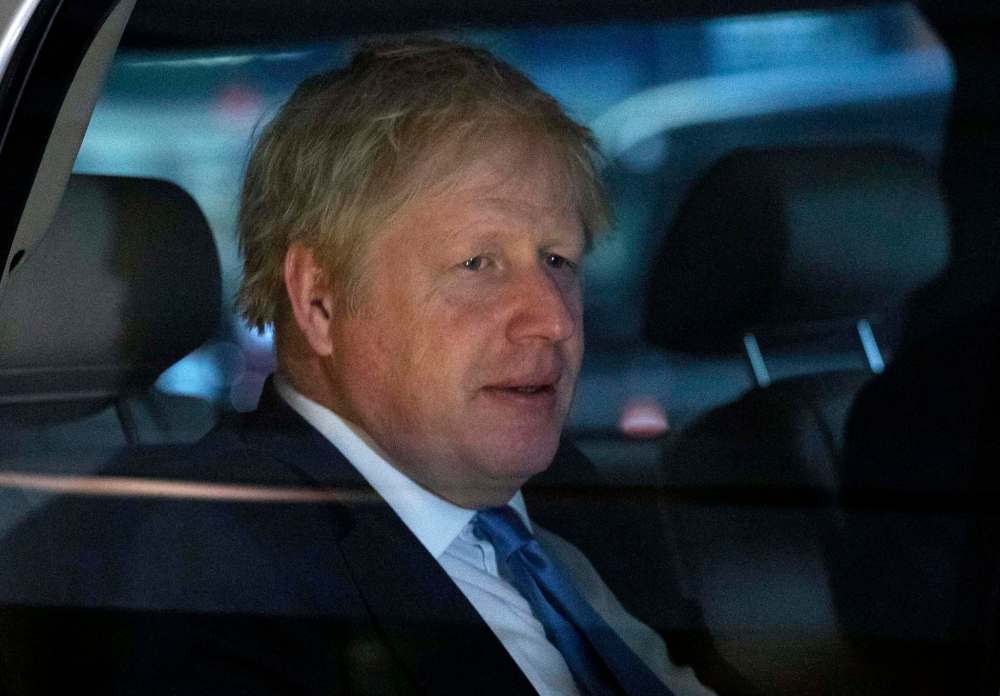
By not speculating on Mr. Johnson’s motives for advising the Queen that Parliament should be suspended, the court stopped short of saying he lied about his reasons for wanting parliamentary debate curtailed. But the implication is clear, and the unanimity of the high court ruling leaves no doubt about the contempt in which the justices hold the PM’s antics.
In New York, where he was forced to cut short his trip to the United Nations General Assembly, Mr. Johnson said he “profoundly” disagrees with the Supreme Court decision but will respect the judicial process.
Meanwhile, back home in London, calls for the PM’s resignation grew louder as more voices continued to join the chorus. Labour Party Leader Jeremy Corbyn vowed Mr. Johnson will face the music for his controversial decision to pre-empt debate in the final weeks before the Brexit deadline.
“Parliament will return. The government will be held to account for what it has done,” Mr. Corbyn said Tuesday. “Boris Johnson has been found to have misled the country. This unelected prime minister should now resign.”
“Parliament will return. The government will be held to account for what it has done. Boris Johnson has been found to have misled the country. This unelected prime minister should now resign.” – Mr. Corbyn
Despite the defiant posture Mr. Johnson assumed in New York (where he maintained that there still exists the possibility to negotiate a new Brexit agreement with the European Union before Oct. 31), it seems very much as if stepping down and letting someone else attempt to solve the Brexit conundrum is the only move he has left.
Having lost his majority in Britain’s House of Commons, he can’t call an election in an effort to reclaim the mandate he needs to proceed. With the Opposition having passed legislation preventing Britain from leaving the EU without an exit agreement, he cannot forge ahead with his oft-professed no-deal Brexit option. And with the EU having regularly and consistently rejected pleas from Mr. Johnson and his predecessor, Theresa May, to reopen Brexit negotiations, the likelihood of striking a new deal before Oct. 31 seems something rather lower on the possibilities scale than “unlikely.”
Mr. Johnson is in a pickle. His mendacity has been laid bare. Brexit is a shambles. And it now seems inevitable that it will be left to Britain’s next prime minister to sort things out, one way or another, on an impossibly tight deadline.


